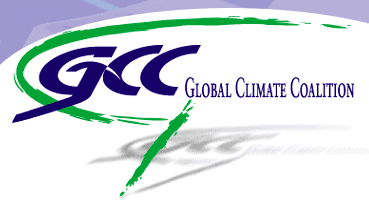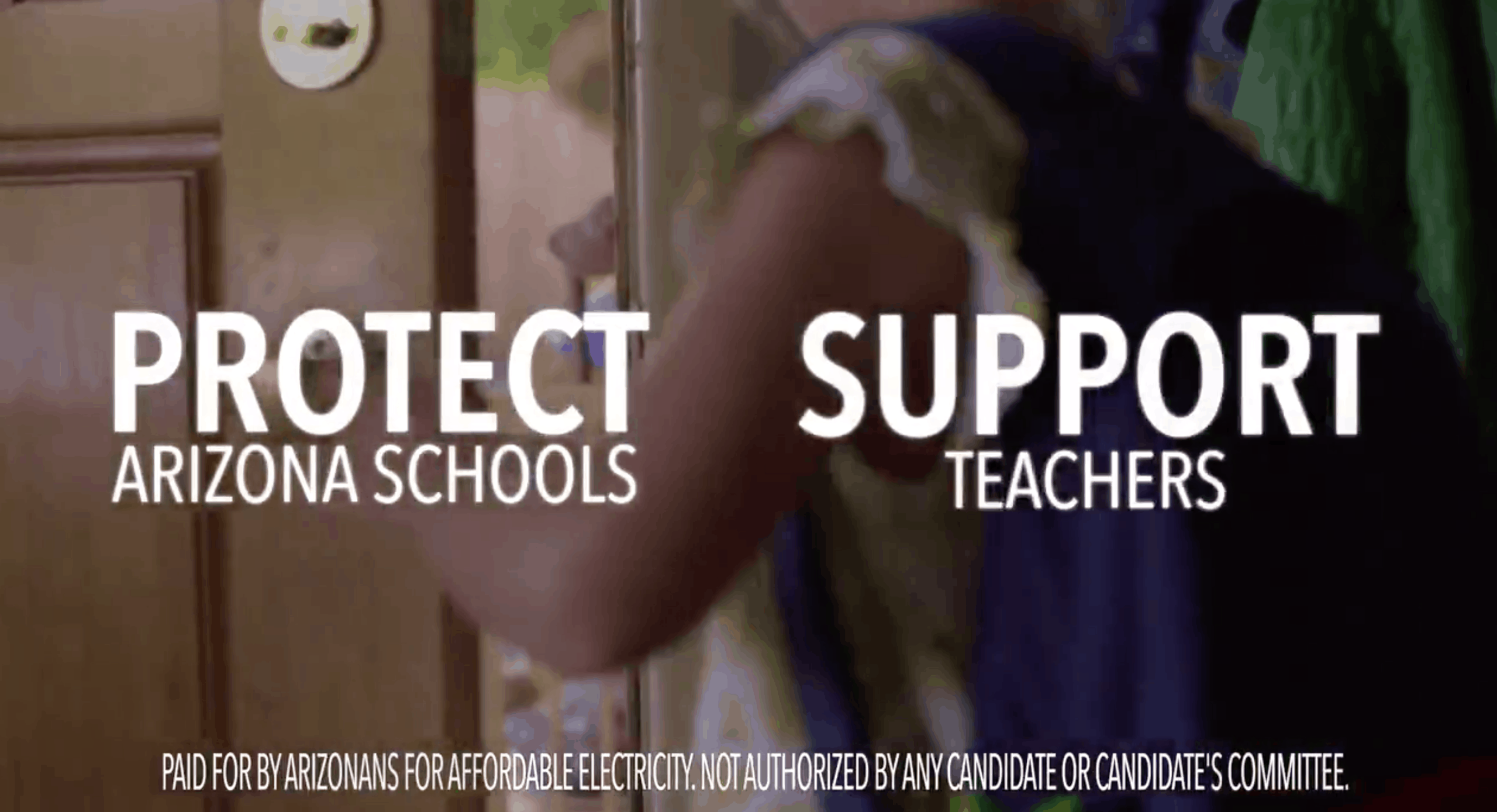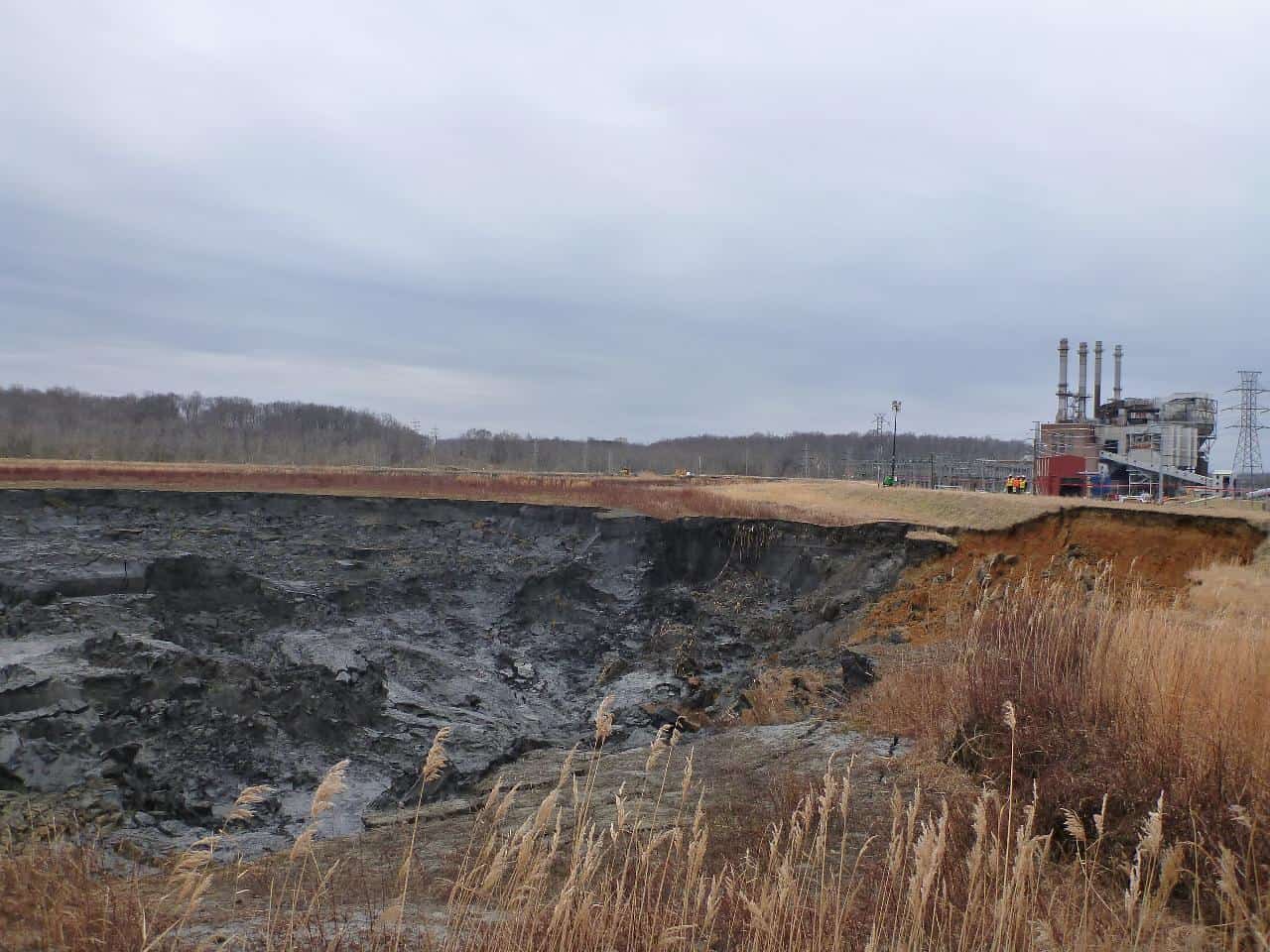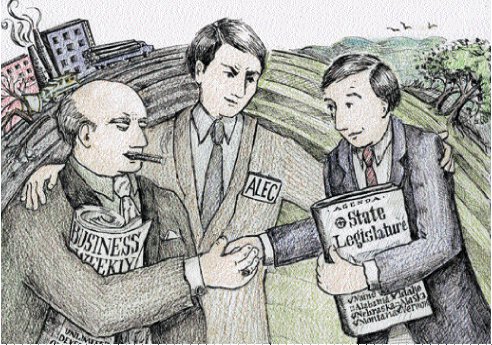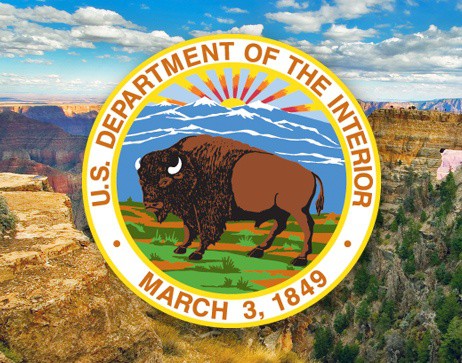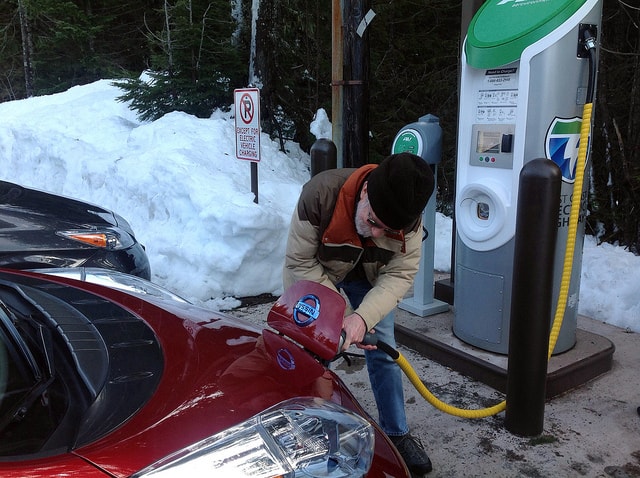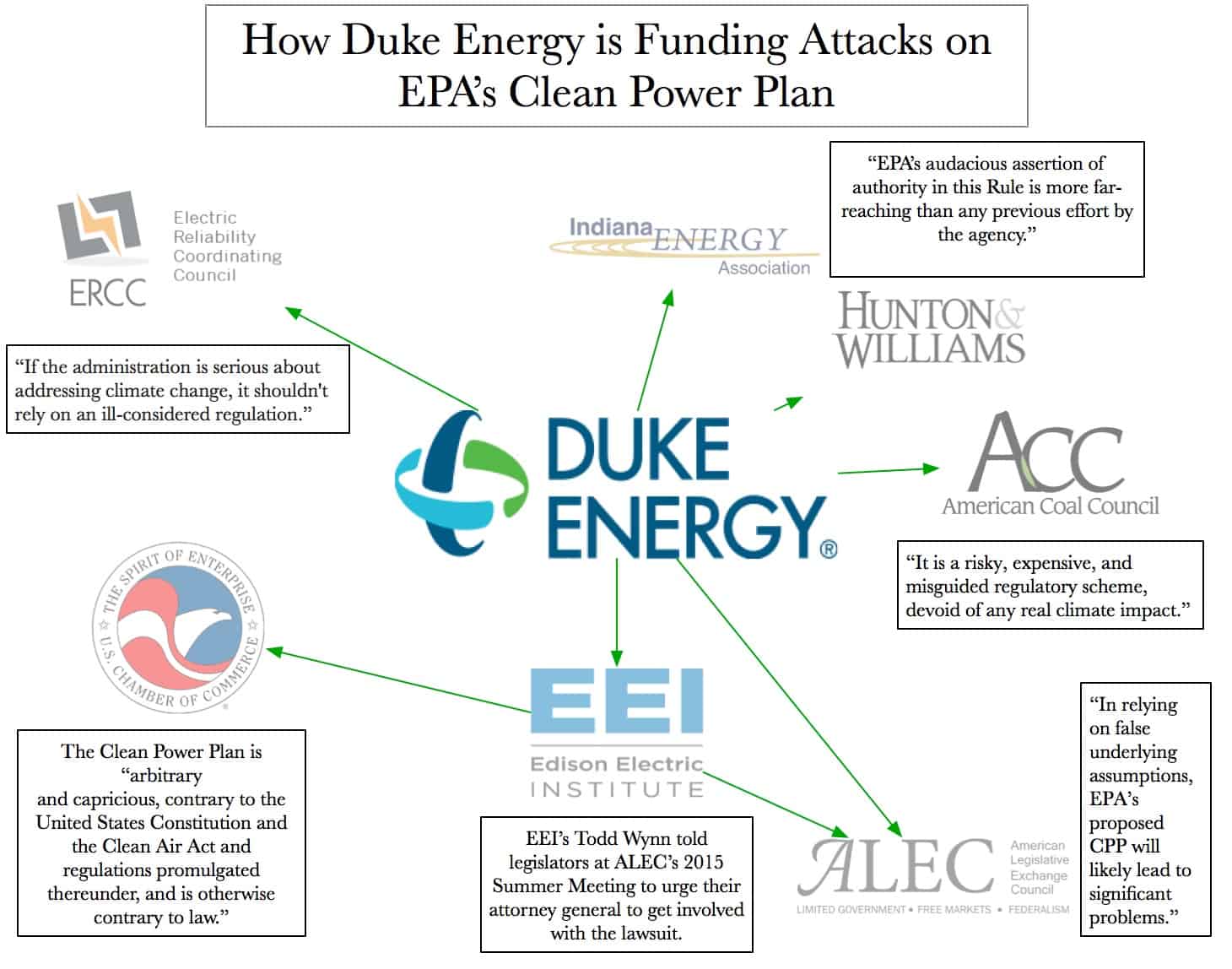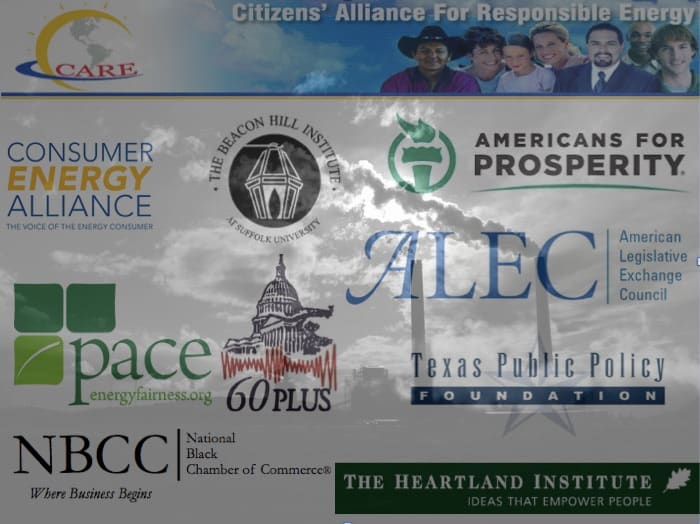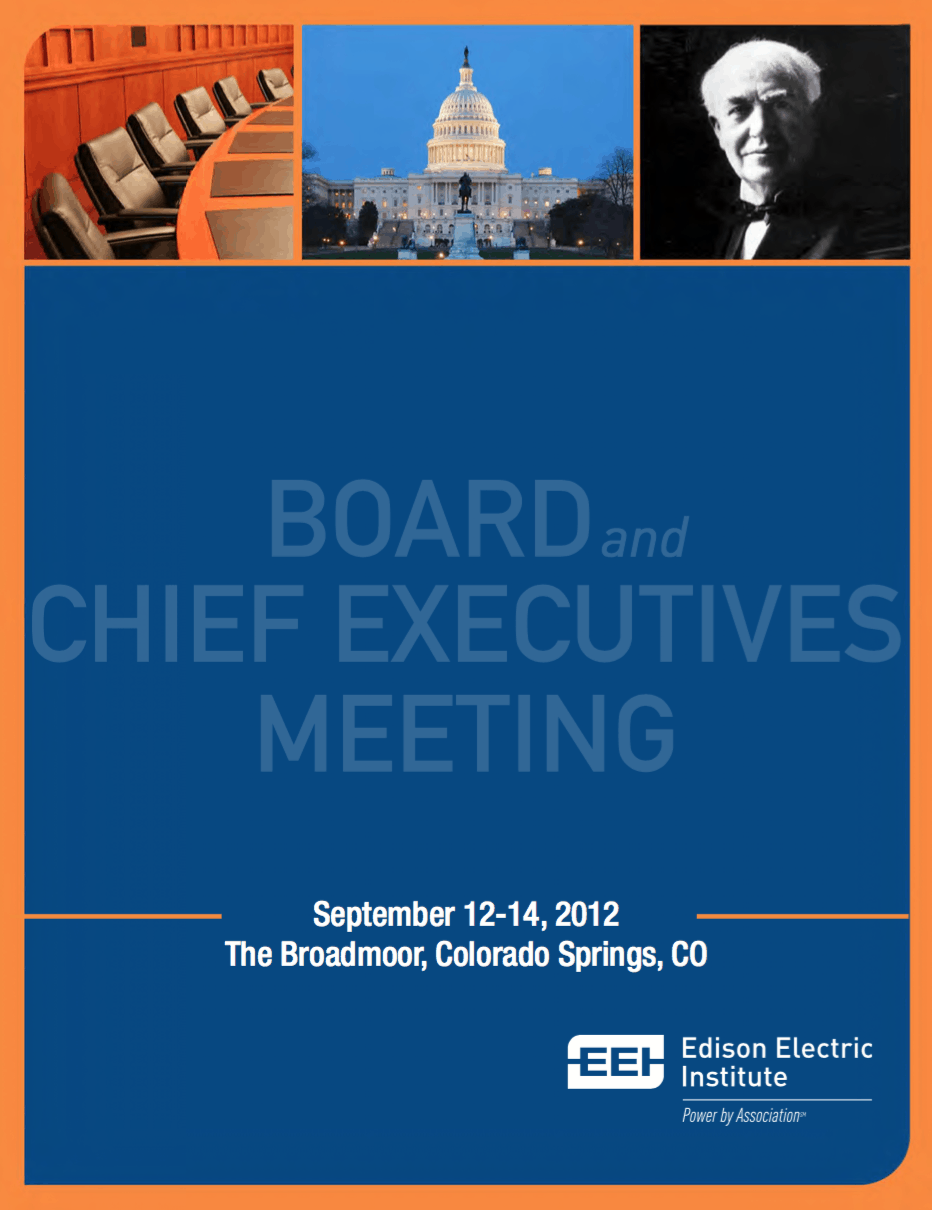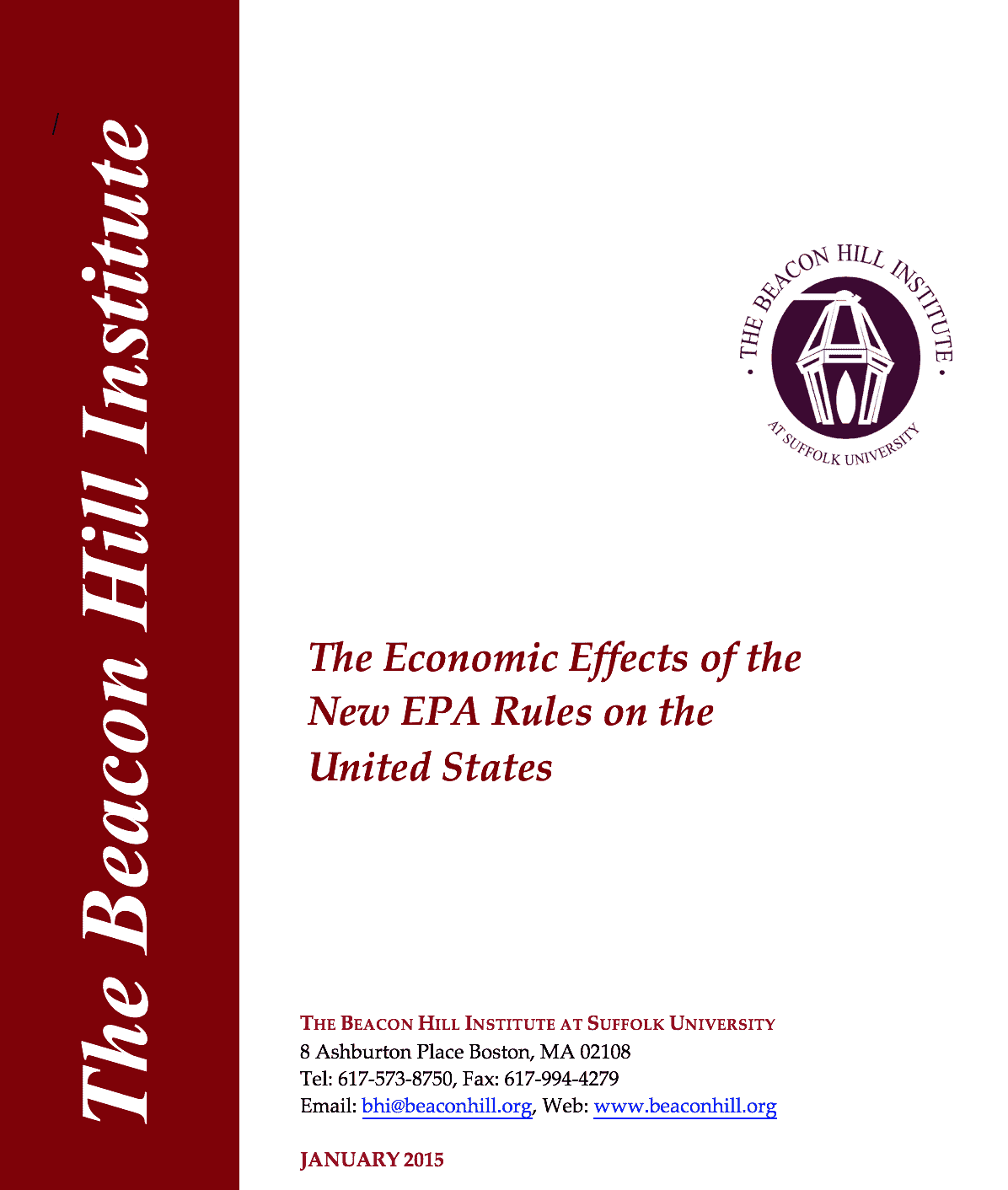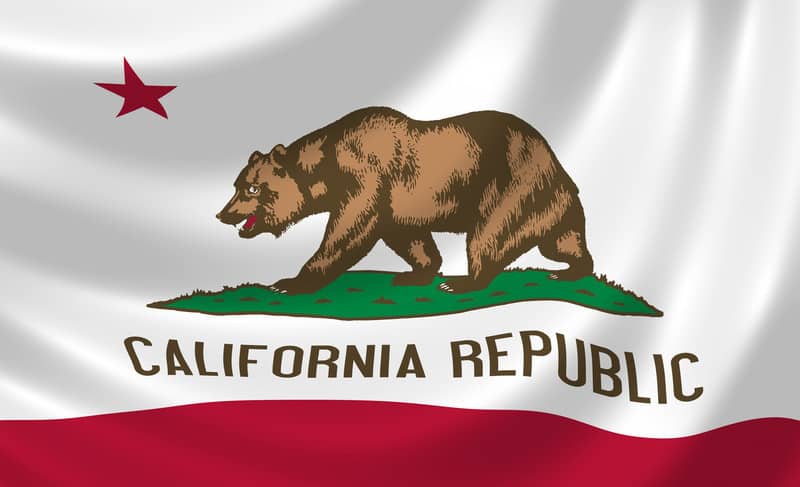American Legislative Exchange Council
The American Legislative Exchange Council (ALEC) connects lawmakers with corporate lobbyists to produce model bills that are then introduced in legislatures across the country. Model bills can be brought to ALEC by the lobbyists themselves, which has led some to describe this organization as a “corporate bill mill.” In fact, 98% of ALEC’s funding comes from corporations or corporate “foundations” like the Charles Koch Foundation. In fact, the Charles Koch Foundation contributed $449,114 to ALEC in 2015 and $551,571 in 2016. This money is then used to subsidize lawmakers’ trips to ALEC meetings, where they are wined, dined, and then vote in committee meetings, side-by-side with lobbyists, on the model bills.
The bills that have come out of ALEC over the past few years do much to advance the corporate members’ interests at the expense of both the environment and the public’s health. Examples include bills that would prevent the EPA from regulating carbon dioxide emissions, and a bill giving corporations legal protections against victims of lead poisoning. ALEC’s Energy, Environment, and Agriculture Task Force, which includes representatives from major fossil fuel companies such as Exxon Mobil, Koch Industries, Duke Energy, and Peabody Energy, has approved model bills to repeal renewable energy standards (RES), weaken RES laws by watering them down with non-renewable sources of electricity, and eliminate solar net metering policies.
Last Week Tonight with John Oliver aired a segment on ALEC in 2014, and explained how the organization makes state lawmakers’ jobs “troublingly easy.” Oliver highlighted the model legislation that repeals RES laws and said, “so as long as you can remember and spell the name of your state, you can introduce legislation.” And this year, it seems that many legislators could remember their state name and spell it correctly, because many model bills were introduced. In fact, one bill appearing in the state of Washington, which weakens that state’s RES, is nearly identical to an ALEC model bill that was distributed to its members this year.
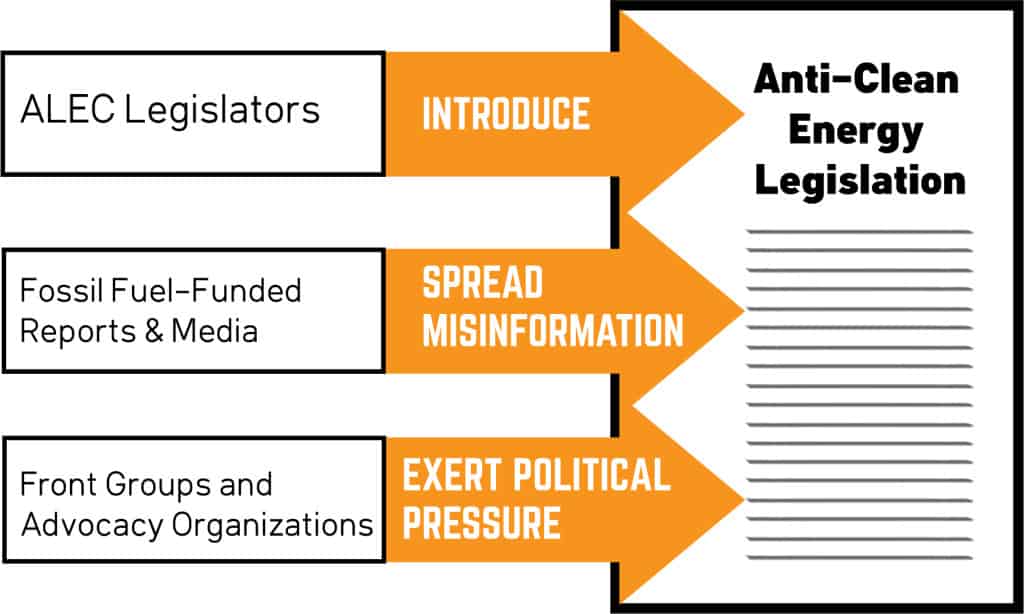 Once ALEC model bills are introduced, allied legislators and fossil fuel-funded front groups cite flawed reports to back up their reasoning to either repeal or weaken RES laws or net metering laws. The reports cited are written by the fossil fuel-funded Beacon Hill Institute housed at Suffolk University, and the Koch-funded professor, Randy Simmons, who works at Utah State University. The groups tout university studies to generate more support to eliminate or weaken clean energy laws, and then State Policy Network lobbyists work to increase co-sponsors while providing testimony in favor of the ALEC bills. Finally, fossil fuel-funded member-based groups, such as Americans for Prosperity, put additional pressure on lawmakers to pass ALEC model bills.
Once ALEC model bills are introduced, allied legislators and fossil fuel-funded front groups cite flawed reports to back up their reasoning to either repeal or weaken RES laws or net metering laws. The reports cited are written by the fossil fuel-funded Beacon Hill Institute housed at Suffolk University, and the Koch-funded professor, Randy Simmons, who works at Utah State University. The groups tout university studies to generate more support to eliminate or weaken clean energy laws, and then State Policy Network lobbyists work to increase co-sponsors while providing testimony in favor of the ALEC bills. Finally, fossil fuel-funded member-based groups, such as Americans for Prosperity, put additional pressure on lawmakers to pass ALEC model bills.
In total, EPI uncovered 14 ALEC-related or inspired model bills in 2015 attacking renewable energy standards and net metering laws. These do not include the ALEC model bills that targeted state environmental agencies’ ability to comply with the EPA’s Clean Power Plan (CPP). The Natural Resources Defense Council reported that were at least 13 bills in 2015 that attacked the CPP.
Corporations and trade associations also began to use ALEC’s new organization, the American City County Exchange (ACCE), to lobby lawmakers. ACCE’s winter “policy summit” featured Todd Wynn of the Edison Electric Institute (EEI), which is the trade association for investor-owned electric utility companies. Wynn was also a former ALEC staffer.
At the summit, Wynn lobbied local elected officials about net metering and municipalization. He told the public officials at the ACCE meeting, “Engage and get to know your local electric utility. Those guys are really great. They can be awesome assets for you. They can help you out with your races at some point in time as well, which is always positive.”


